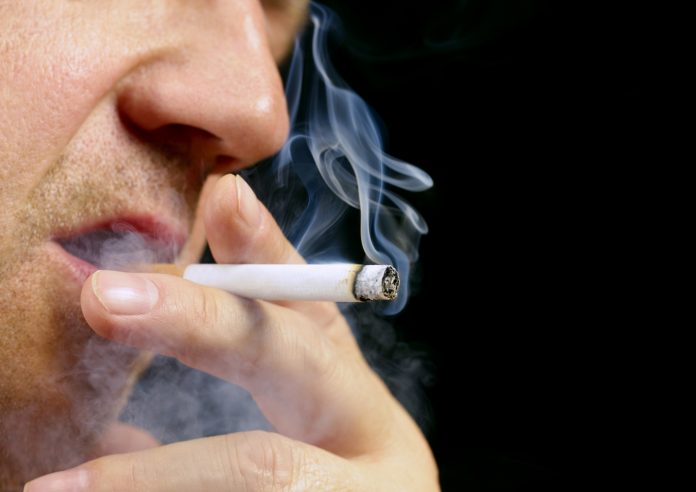
New research shows that smoking induces DNA mutations through “stop-gain” that stop cells from making needed proteins. They found that these stop-gain mutations were especially prevalent in tumor suppressor genes which make proteins that stop cancers from forming and growing. The research is published in Science Advances.
While it is widely accepted that smoking causes DNA mutations, the precise mutational processes involved have been less well-understood. “The new bit of information from our analysis is that smoking causes these gene loss of function mutations, so it disables genes and the proteins they make,” explains senior author, Jüri Reimand, PhD, of the Ontario Institute for Cancer Research and associate professor at the University of Toronto.
The research team analyzed DNA from more than 12,000 tumor samples across 18 different types of cancer. Their analysis showed a strong link between stop-gain mutations in lung cancer and the telltale ‘footprint’ that smoking leaves in DNA.
The researchers then looked at whether how much someone smoked had an impact. Their analysis showed that more smoking led to more of these harmful mutations, which can ultimately make cancer more complex and harder to treat.
Not all mutations in DNA are equal, while some of them are highly impactful. “We found mutations that create stop codons in proteins, which one can think of like a period punctuation mark in the middle of a sentence, causes them to stop making critical proteins,” says Reimand. “It’s a flavor of DNA mutations that is particularly important.”
The team further discovered that these premature stop codons tend to accumulate in tumor suppressor proteins because the cancer wants those proteins to stop or become disabled. “It’s a loss of function mutation that disables the protein through inducing a stop codon earlier than expected,” adds Reimand. “And when you have a large enough cohort, as we did in this study, we can see that there’s a preference towards those stops in tumor suppressor proteins through the mutational processes.”
The study also identified other factors and processes responsible for creating large numbers of stop-gain mutations, which are also called ‘nonsense’ mutations. Some, like a group of enzymes called APOBEC that is strongly linked to stop-gain mutations in breast cancer and other cancer types, occur naturally in the body. Other factors like unhealthy diet and alcohol consumption are also likely to have similar damaging effects on DNA, but Reimand says more information is needed to fully understand how that works.
As for smoking, the findings from this study are an important piece of the puzzle behind how smoking causes leads to lung cancer. From a prevention angle, Reimand suggests people might consider picking up a cigarette less often if they knew that the cigarettes are essentially causing very harmful mutations on the way to gene knockouts in their cells.
“I think this study is scratching the surface in the context of understanding how mutational processes and DNA mutations relate to function, and where they come from,” adds Reimand, who believes researchers only have preliminary ideas about the various environmental effects or the DNA damage and repair pathways in our cells that contribute to mutations.
“As we are collecting more genomics data and data about our environment, then we might be learning more about how those mutational processes actually act on our cells,” he says.













